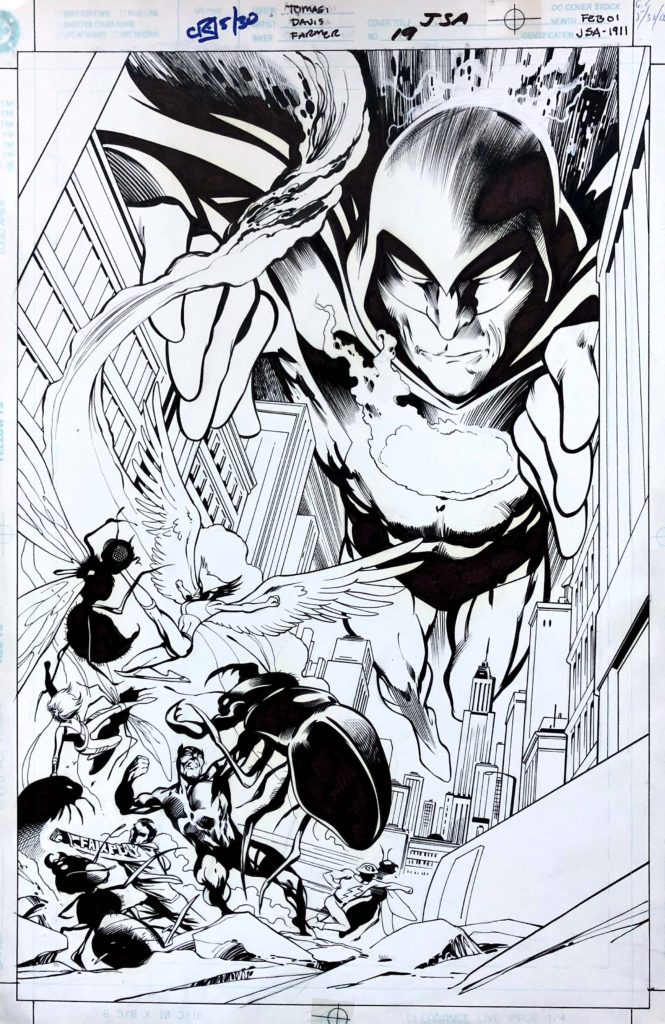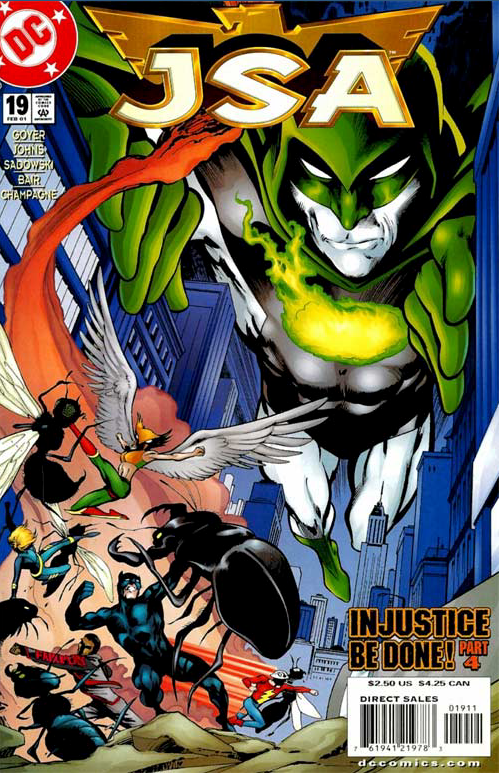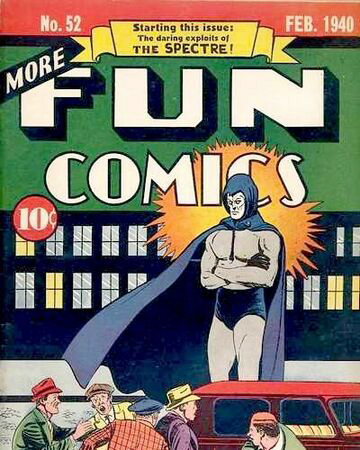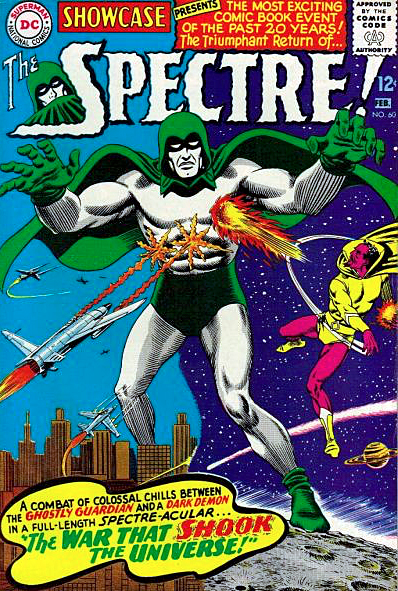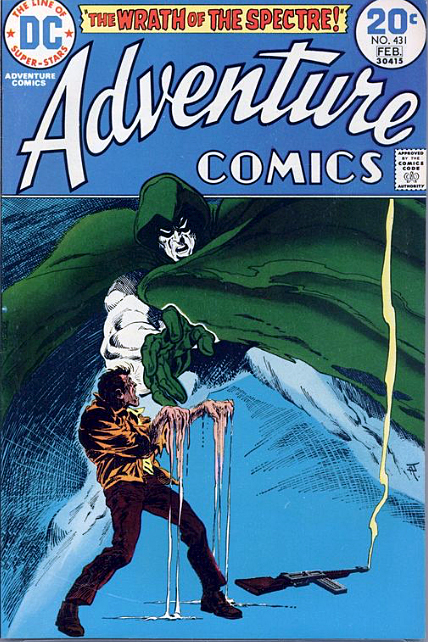Alan Davis — There Goes The Neighborhood
JSA #19, February 2001
I have a sweet spot for the Spectre, and I love the way he dominates this Alan Davis cover of this issue of the Justice Society. Despite the fact that I am an enthusiastic fan of Davis’ work, this is the first (and only) cover he drew that I own. I should rectify that one of these days.
As a young teen, I was the perfect age for the crazy, but brief, Bronze Age version of the character written by Michael Fleisher and wonderfully drawn by Jim Aparo, which featured woeful fates for the character’s antagonists. This version of Spectre arrives (early 1974) at nearly the exact same time as does another anti-hero, the Punisher, across town at Marvel comics.
Justice is served, indeed.
Comic book historian Les Daniels discussed the origin of this version of the character in DC Comics: Sixty Years of the World’s Favorite Comic Book Heroes:
“Joe Orlando was mugged and decided the world needed a really relentless super hero. The character came back with a vengeance … and quickly became a cause of controversy. Orlando plotted the stories with writer Michael Fleisher, and they emphasized the gruesome fates of criminals who ran afoul of the Spectre. The Comics Code had recently been liberalized, but this series pushed its restrictions to the limit, often by turning evildoers into inanimate objects and then thoroughly demolishing them. Jim Aparo’s art showed criminals being transformed into everything from broken glass to melting candles, but Fleisher was quick to point out that many of his most bizarre plot devices were lifted from stories published decades earlier.”
I had only recently discovered the classic EC Comics horror tiles, and these gruesome fates seemed to meld together the supernatural, horror and superhero tropes into one wonderful blended margarita of storytelling.
Definitely worth my 20 cents.
Fun fact: 1974 is indeed the year of the anti-hero. Wolverine appears for the first time a few months later. It took a while, but in 1982, a catchphrase summed up his personality. “I’m the best there is at what I do, but what I do best isn’t very nice.” Snikt!

